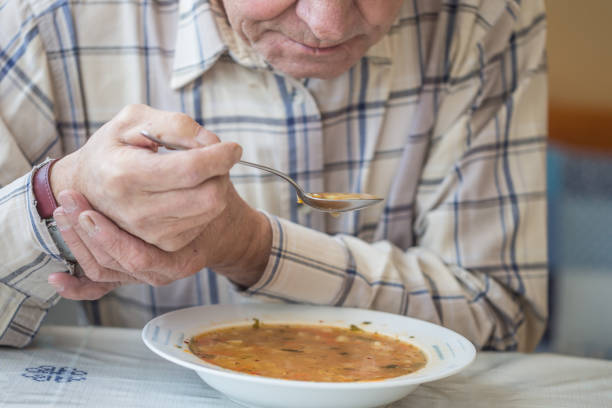There is a lot of debate surrounding Parkinson’s disease. Is Parkinson’s an autoimmune disease? What are the causes? Is there a cure? In this blog post, we will explore all of these questions and more. We will take a look at the latest research to see if there is any evidence that suggests it is an autoimmune disease.
What Is Parkinson’s Disease?
Parkinson’s disease is a chronic and progressive neurological disorder that affects the movement of the body. The main symptoms are tremors, rigidity, slowness of movement, and difficulty with balance. Parkinson’s disease typically develops slowly and gradually worsens over time.
The cause of Parkinson’s disease is unknown, but there are several theories about what may contribute to its development. One theory suggests that it may be caused by an autoimmune reaction, where the body’s immune system mistakenly attacks healthy cells in the brain.
Certain nerve cells (neurons) in the brain gradually break down and die. This damage is thought to be caused by a combination of genetic and environmental factors.
The loss of these neurons leads to a decrease in the production of a chemical called dopamine. Dopamine is responsible for transmitting messages between the brain and the body that control movement. So, when it is reduced, it results in the movement problems characteristic of Parkinson’s disease.

Symptoms Of Parkinson’s Disease
The main symptoms of Parkinson’s disease are tremors, rigidity, slowness of movement, small handwriting, and difficulty with balance. There are more early signs of this disease.
Tremor
Tremor is the most common symptom and can affect any part of the body. The tremor may be mild at first and may only occur when the person is anxious or stressed. As the disease progresses, the tremor may become more severe and can occur even when the person is at rest.
Rigidity
Rigidity is stiffness and resistance to movement in the muscles. This can cause difficulty with moving and bending the arms, legs, and trunk of the body.
Slowness Of Movement
The slowness of movement, also called bradykinesia, is a decrease in the speed of movement. This can make everyday activities such as getting dressed or brushing teeth difficult and time-consuming.
Difficulty With Balance
Difficulty with balance, also called postural instability, can make it hard to keep the body upright and can lead to falls.
Small Handwriting
Small handwriting, also called micrographia, is a common symptom of Parkinson’s disease. The letters may become smaller and closer together as the disease progresses.
Loss of Smell
Many people with Parkinson’s disease also lose their sense of smell. This can happen even before the other symptoms appear.
Trouble Sleeping
Trouble sleeping, or insomnia, is a common symptom of Parkinson’s disease. People with Parkinson’s may have difficulty falling asleep or staying asleep.
Fatigue
Fatigue is a feeling of tiredness that is not relieved by rest. It can make everyday activities more difficult and can cause people to feel irritable and depressed.
Constipation
Constipation is a common symptom of Parkinson’s disease. This can be caused by the slowed movement of food through the digestive system and by the side effects of some medications used to treat Parkinson’s.
Autonomic Dysfunction
Autonomic dysfunction is a term used to describe problems with the autonomic nervous system. This system controls the body’s automatic functions, such as blood pressure, heart rate, sweating, and digestion. People with Parkinson’s disease may have difficulty regulating these functions.
Dizziness or Fainting
Dizziness or fainting can be caused by autonomic nervous system dysfunction. When blood pressure drops suddenly, it can cause people to feel dizzy or lightheaded and can lead to fainting.
Urinary Problems
Urinary problems, such as difficulty urinating or incontinence, are another symptom of autonomic nervous system dysfunction.
Sexual Dysfunction
Sexual dysfunction, such as difficulty achieving or maintaining an erection, is common in men with Parkinson’s disease. Women may also have trouble with sexual function and may experience dryness, pain, or decreased sensation.

What Can You Do If You Have PD?
If you or someone you know has Parkinson’s disease, there are many things you can do to manage the symptoms and improve your quality of life.
Exercise
Exercise is an important part of managing Parkinson’s disease. It can help to improve flexibility, balance, and muscle strength. It can also help to reduce fatigue and improve mood. There are many different types of exercise programs available, so it is important to find one that is right for you.
Medication
There are several different types of medications used to treat Parkinson’s disease. These include levodopa, dopamine agonists, MAO-B inhibitors, and anticholinergics. Medications can be used to relieve symptoms and slow the progression of the disease.
Surgery
In some cases, surgery may be an option to treat Parkinson’s disease. Surgery can be used to implant deep brain stimulation electrodes that help to regulate the activity of certain brain regions. Surgery is usually only considered when other treatment options have failed.
Therapy
Physical, occupational, and speech therapy can all help manage symptoms of Parkinson’s disease. Therapy can help to improve mobility, balance, and speech. It can also help to reduce fatigue and depression.
Support Groups
There are many support groups available for people with Parkinson’s disease and their families. These groups provide information and emotional support. They can also be a great way to meet other people living with the disease.
Is There A Cure For Parkinson’s Disease?
There is no known cure for Parkinson’s disease, but there are treatments that can help manage the symptoms. The most common treatment is medication, which can help improve tremors, rigidity, slowness of movement, and balance. Other treatments include physical therapy, occupational therapy, and surgical intervention.
The goal of treatment is to improve quality of life and reduce symptom severity. There is no one-size-fits-all approach to treatment, as each person will respond differently to various treatments.
Is There Evidence That Parkinson’s Is An Autoimmune Disease?
There is currently no cure for Parkinson’s disease, and treatments are only effective at managing symptoms. There is no definitive test for Parkinson’s disease, so diagnosis is often based on the exclusion of other conditions.
There is some evidence to suggest that Parkinson’s disease may be an autoimmune disorder. A study published in 2008 found that people with Parkinson’s disease had higher levels of antibodies against a protein called alpha-synuclein. This protein is found in the brain and is thought to play a role in the development of Parkinson’s disease.
Another study published in 2011 found that people with early-onset Parkinson’s disease were more likely to have certain autoantibodies, compared to those without the disease. However, it is not clear if these autoantibodies are causal or just associated with the disease.
At this time, there is not enough evidence to say definitively whether or not Parkinson’s disease is an autoimmune disorder. However, the available evidence does suggest that it may be a possibility. Further research is needed to confirm this.
Conclusion
There is still much unknown about Parkinson’s disease. What we do know is that it is a chronic and progressive neurological disorder that affects the movement of the body. There is no known cure, but there are treatments that can help manage the symptoms. The cause of Parkinson’s disease is unknown, but there is some evidence that suggests it may be an autoimmune disease. More research is needed to confirm this. Thank you for reading!

